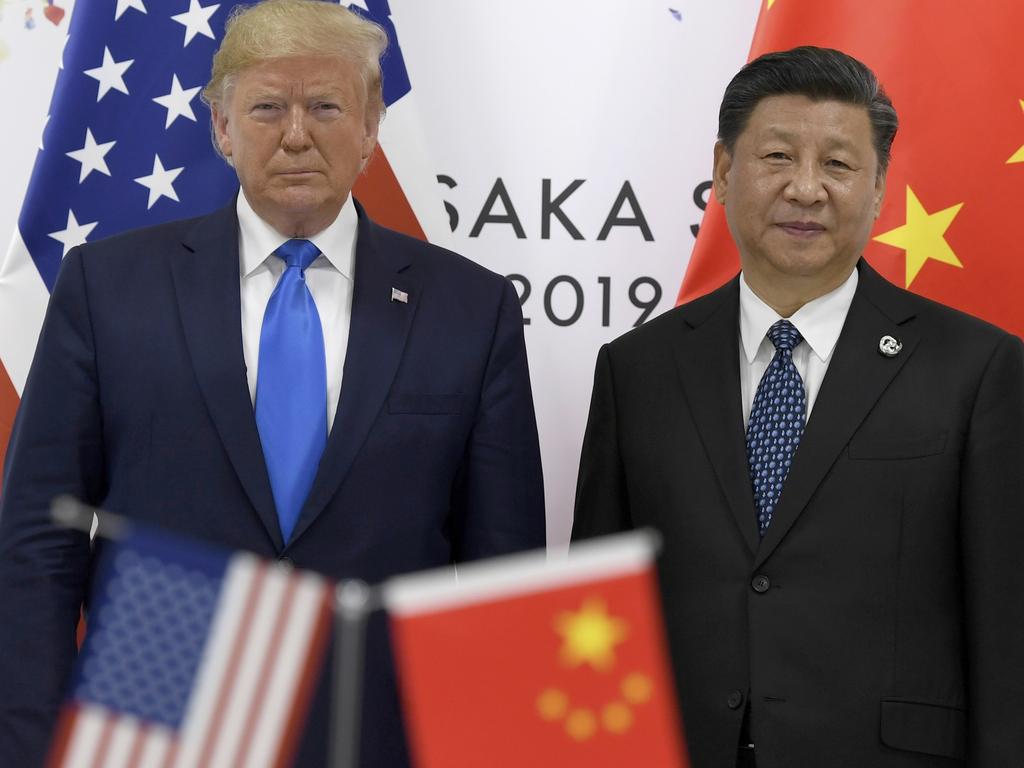China stung by Trump’s 20pc tariff deal with Vietnam
Hanoi has escaped the threatened 46pc ariff, but the deal includes a 40pc levy on Chinese goods that pass through Vietnam to circumvent steeper trade barriers.

President Donald Trump has struck a trade deal with Vietnam that includes a China-focused 40 per cent tariff on “trans-shipments”, which was agreed despite threats from Beijing to take “resolute countermeasures” against Hanoi.
The American president announced the broad outline of the deal on social media, saying Vietnamese exports to the US would incur a 20 per cent tariff, less than half the 46 per cent first announced during the “Liberation Day” tariff blitz.
Trump said that Vietnam had agreed to drop all levies on US imports. “In other words, they will ‘OPEN THEIR MARKET TO THE UNITED STATES,’ meaning that, we will be able to sell our product into Vietnam at ZERO Tariff,” Trump wrote on Wednesday, American time.
Vietnam’s party state media later reported that Vietnamese Communist Party chief To Lam had spoken with Trump and the two countries had reached a consensus on a “fair and balanced reciprocal trade agreement framework”.
The deal would be only the third reached by Washington since “Liberation Day”, following an agreement with the UK and a fragile trade truce with China.
It comes less than a week before Trump’s self-imposed July 9 deadline for steeper tariffs on US trade partners is due to take effect if agreements are not reached.
Mark Williams, chief Asia economist at Capital Economics, said the Vietnam deal confirmed the Trump administration’s fixation on China in its trade negotiations.
“The key lesson for other countries from this deal, and that agreed previously by the UK, is that they will be expected to curtail some trade with China,” Williams wrote in a note to clients.
Beijing has criticised the UK’s trade deal with the US, which included strict security requirements for Britain’s steel and pharmaceuticals industries that were widely interpreted being focused on China.
Days before the Vietnamese agreement, the Chinese Commerce ministry warned of consequences for any other country that made trade deals with the US at the expense of Chinese interests.
“If such a situation arises, China will not accept it and will take resolute countermeasures to safeguard its legitimate rights and interests,” said a spokesman for China’s Ministry of Commerce.
The Chinese government spokesman accused the United States “unilateral bullying that seriously undermines the multilateral trading system and disrupts the normal international trade order.”
Chinese firms have used Vietnam as a popular “grey channel” to evade American tariffs on China since the first Trump administration.
The Vietnamese route became even more popular for US-dependent Chinese exporters after Trump raised tariffs to 145 per cent in April.
After two rounds of negotiations, China and America have agreed to de-escalate their trade war, although many imposts remain.
Beijing continues to slow-walk approval of rare earths exports that are integral to US high end manufacturing, despite repeated claims by the White House that China has agreed to restore the trade.
Meanwhile, even after the de-escalation, America’s effective tariff rate on China remains above 55 per cent, higher than any other US trade partner.
Almost 30 per cent of Vietnam’s exports go to America. Only China and Mexico have a bigger trade surplus with America, a fixation for the US president.
The 20 per cent tariff level would still leave Vietnam relatively competitive for US manufacturers considering leaving China, a priority for some American officials.
Share in American sports clothing giant Nike, which has moved much of its manufacturing to Vietnam, closed up 4 per cent on the news.
However, the terms of the agreement would significantly increase the price of shoes and clothing that Vietnam exports to the US.
This week, Trump has threatened Japan with tariffs as high as 35 per cent as Tokyo — America’s most important ally in Asia — refuses to buckle to American demands over agricultural market access.
Japanese media has reported that Tokyo’s top trade negotiator would likely travel to Washington this weekend for what would be Japan’s eighth round of talks with the Trump administration.






To join the conversation, please log in. Don't have an account? Register
Join the conversation, you are commenting as Logout